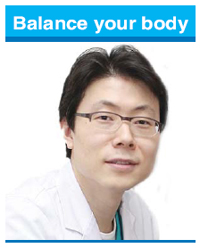Guide to boosting Ginseng benefits
The heat is on, quite literally. Many people tire easily as they sweat a lot from the heat. It is this time of the year many seek out stamina foods and remedies that can replenish one’s Qi. Among such remedies, ginseng roots rank as one of the most sought out.
According to “Donguibogam,” a medical encyclopedia from the Joseon Kingdom (1392-1910), ginseng is characteristically warm, sweet and free of toxins; it can replenish the Qi lacking from the five viscera (a collective term for the heart, liver, spleen, lung and kidney); it has a calming effect on the nerves; brightens one’s sight and replenish damaged Qi. Scientifically, it has been proven that ginseng is effective in strengthening one’s organs, improving the immune system and lowering of blood sugar level. Its many other medicinal effects are studied and known in detail.
Depending on the state of processing, ginseng roots are classified into 3 categories. “Raw Ginseng” is, as the terminology suggests, just as it was grown and harvested. “White Ginseng” is one where the raw ginseng is dried. “Red Ginseng” is where a raw ginseng is repetitively steamed and dried for about nine times till the ginseng has a brown or red hue. Through processing, red ginseng ends up with a significant amount of water removed from the raw ginseng, and thus it is made easy to store, which allows for its popular use.
In Sasang constitutional medicine, ginseng is classified as a medicinal herb suited for a So-Eum-In (SE type). An SE type, whose upper body is less prominent than the lower body, has a cold body and prone to weak digestive systems. Ginseng is very suitable for SE types as it helps restoring stomach functions. In practice, almost all prescriptions for SE type will include ginseng.
Korean summer time favorite Sam-gye-tang (literllay, ginseng-chicken soup), which most Koreans love to eat during summer to beat the heat, contains ginseng as one of the main ingredients. If you look at other ingredients in it, however, they are also generally suitable for SE types. The other main ingredient, the chicken is characteristically a warm food. Other ingredients such as garlic, jujube dates, and milk vetch roots are also warm ingredients that strengthen stomach functions.
SE types are likely to feel groggy and become easily tired when sweating. It is considered that when SE types sweat, their Yang-Qi is released. On the contrary, a Tae-Eum-In (TE type) whose body is full of dampness (dampness as a pathogenic factor characterized by its impediment to qi movement and its turbidity, heaviness, stickiness and downward flowing properties), is helped by sweating as it removes dampness and helps circulation, and thus feels refreshed. Sam-gye-tang is a great food for the SE types, as it restores the Yang-Qi that is lost through sweating during summer, and at the same time blocks the pores to prevent further loss of it.
Ginseng is widely used due to its many medicinal and health benefits, but if the patient’s constitution is incorrectly matched, it can cause side effects. A So-Yang-In (SY type) whose upper body is more prominent than the lower body, characteristically speaking, contains lots of heat within the body. The heat within body can cause illness for an SY type, and adding more heat with ginseng can cause only more problems, such as skin rash or chest pains. When it comes to all medicinal herbs including ginseng, it is ok to take them as food even if your constitution is not the right match for the herb, or if you are very ill. However, if you are considering taking them for an extended period of time or for the prescribed medicinal benefits, it is highly recommended that you take the right herbs for your constitution.
Therefore, if you consider taking dietary supplements such as red ginseng, it is recommended that you seek advice from a Korean Oriental Medicine (KOM) doctor to see if it would be suitable for your particular constitution.
A common misconception about taking herbal medicine in summer is that all of its good effects are lost through sweating. Those who feel groggy during summer are generally SE types, because they sweat out their Qi. Herbal medicine can certainly be helpful for such people as it will restore the lost Qi so that they can withstand the scorching heat of a Korean summer. <The Korea Times/Lee Sung-hun>





